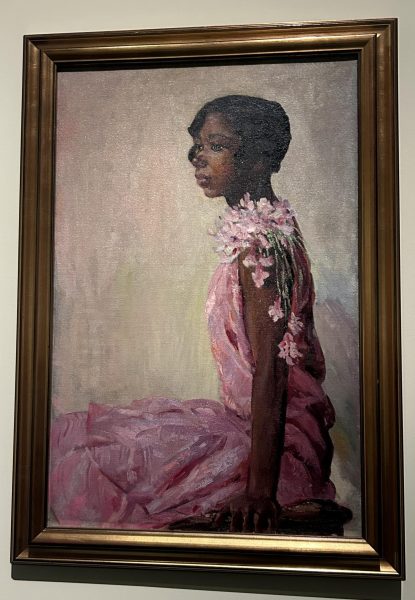‘Tiger King’: A Moral Mess
Students enjoy killing time by binging newly-released Netflix shows. The trailer of ‘Tiger King’ entices viewers with provocative clips of conflict and violence.
Scrolling through the internet, ‘Tiger King: Murder, Mayhem, and Madness’ does not fail to make an appearance. Social media is littered with memes of Joe Exotic, now a household name, and infatuated with the lives of the tiger owners. The docuseries has quenched the thirst of quarantined Netflix-goers, but does its long-standing position on Netflix’s Top 10 live up to the unrelenting praise that it has received on social media? Or are people settling with anything to watch?
‘Tiger King’ captures the deeply intertwined realm of tiger owners. At the center of the series is Joe Exotic, a zookeeper for captive big cats, and Carole Baskin, an animal rights activist. The two are notorious for their ongoing feud over whether big cats should be held captive. Exotic’s attention-seeking ways fuel their exchanges and the series of bizarre events that follow. Other tiger owners, like Doc Antle, come into the picture as they begin to associate with Exotic, and an impossibly more eccentric story unfolds. Before watching this series, you should expect the unexpected.
“It did a good job of bringing a topic that most wouldn’t have cared to research into the public view,” said Iskander Khan ’22. The docuseries opens by warning viewers of what is to come with one word: “crazy.” And the introduction was correct.
The main attraction of the series that keeps viewers on the edge of their seats is the outlandishness of each tiger owner and the events of their lives. Coming into the show, I anticipated the docuseries would portray the hot button issue of captive tigers in black and white, where the animal rights activists were the heroes and the private tiger keepers were the villains. I was gravely mistaken. “I do commend Tiger King for its moral dubiousness, which allowed for it to thrive as a popular series,” said Frederick Halo ’21. However, I found it difficult to find a protagonist to stand behind and gasped in horror at psychological abuse, alleged murder-for-hire, and almost deadly tiger interactions.
Unfortunately, the series prioritizes shock value over facts. As much as I like to parrot the vapid “Carole Baskin killed her husband,” no physical evidence has been uncovered to substantiate that Baskin actually killed her late husband, Don Lewis. Instead, the documentarians purposefully implied this by having Lewis’ children dogmatically state that Baskin killed her husband. The move was good to stir up trivial, blind-sighted Twitter arguments, which is becoming a marketing tactic, but it betrayed journalistic integrity.
After the resounding success of the seven-part series, the producers decided to release a special eighth episode to catch up with some of the main people, which was moderated by comedian Joel McHale. Saff, one of Exotic’s loyal employees and one of the few sane people in the series, highlighted what would have been a profound moment if it were given more screen time. He acknowledges the free Thanksgiving dinner that Joe and his family provided for the community. If the creators of the show had given more screen time on this aspect of Joe’s personality, viewers wouldn’t see him as Joe who threateningly shoots into the river and aggressively bad mouths his contender. Once again, the show prioritizes the sensational over the accurate. I would have loved to see the show portray the good and the bad — not just the bizarre side of Joe. Adding personal, meaningful moments would have created a more dimensional depiction of the tiger owners, rather than merely vengeful cult leaders.
Although the audience tends to spotlight Exotic’s music videos and quotable one-liners, the docuseries exposes the dark underbelly of the reality that tigers endure. There are more illicitly bred tigers than those in their natural habitat. The series does a poor job addressing this, as it only briefly mentions it in fleeting snippets of news broadcasting throughout the episodes and at the end. It is disappointing to see Netflix fail to give justice to this issue and cheapen the issue solely to entertainment.
One pressing question that ran through my mind throughout the entire series was what led all of these big cat fanatics on this treacherous path? Since the producers focus on the main story, they leave much up to speculation. As terrible as many big cat fanatics were, the real villain of ‘Tiger King’ is the human ego since this is what drove many of the bizarre events. I can only imagine that all the tiger owners joined the industry with a genuine passion for tigers, but as many industries devolve into greed, greed got in the way. This is exemplified through Exotic. Living in a conservative town as a gay and polygamous member, he found it difficult to be accepted in his own hometown. The detachment from his town drove his incessant need to act irrationally, which society latched onto and, hence, fueled his ego.
Despite the flaws, my urge to continue following the mind-boggling events of what appeared to be more bizarre than fiction had my eyes glued to the screen. And you will find yourself hooked as well.
To watch ‘Tiger King,’ on Netflix (subscription required), click HERE.
Despite the flaws, my urge to continue following the mind-boggling events of what appeared to be more bizarre than fiction had my eyes glued to the screen. And you will find yourself hooked as well.
Cadence Chen is an Editor-in-Chief for ‘The Science Survey.’ She enjoys journalistic writing for its artistic concision and sharp insights. Cadence...











